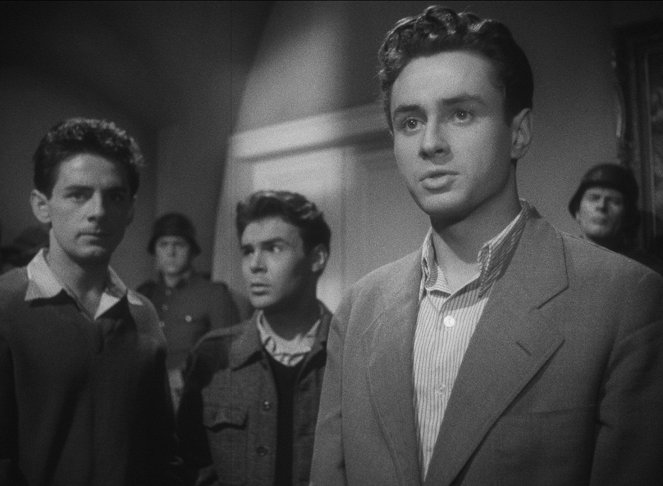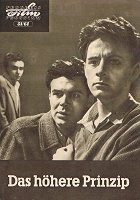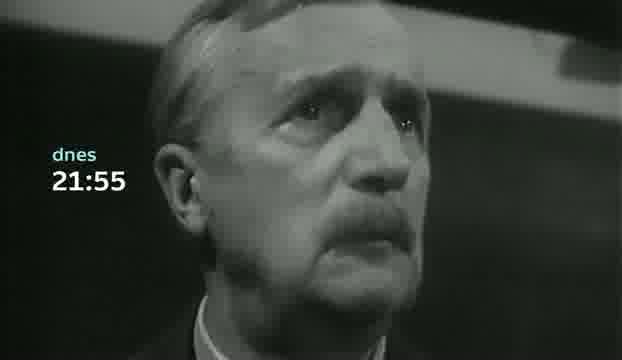Directed by:
Jiří KrejčíkCinematography:
Jaroslav TuzarComposer:
Zdeněk LiškaCast:
František Smolík, Jana Brejchová, Ivan Mistrík, Jan Šmíd, Alexandr Postler st., Petr Kostka, Radovan Lukavský, Václav Lohniský, Marie Lukášová (more)Plots(1)
Professor Málek who teaches classic philology at a grammar school tries hard not to think about the terror ensuing the assassination of Reich-Protector Heydrich. He prefers to stay immersed in the serenity of his beloved classical philosophy. All his life he has been following higher moral principles and he expects even the Nazi to comply with the ethical code. Only the arrest and execution of three innocent students bring him out of his shell to publicly condemn the despicable atrocities. (Summer Film School)
(more)Videos (2)
Reviews (5)
Phenomenal! The brutal consequences of the Heydrichiad, confronted with the easy naivety of the graduating class, have never been more palpable in cinema. The fear of ordinary people to let a single bad word out of their mouths, dear citizens who bend over backward, and those who, even in their most difficult moments, have maintained their equality with themselves. A perfect cinematic epitaph to all those who fell victim to one of the most vicious acts of revenge ever carried out.
()
I finally got to this Czechoslovakian treasure, and is really very little to fault it for. It’s an excellent film that not only has great acting performances, but also an excellent story based on a literary novel. Krejčík’s direction is extremely confident, but it is František Smolík and Jana Brejchová who are absolutely stunning.
()
It may be a coincidence, but just yesterday I mentioned in my review that Kolya was my opinion one of the three best Czech films, but in the evening I watched this amazing masterpiece, and suddenly Svěrák and co. are relegated to the fourth place. This is a superb film, a perfect mosaic made of the oppressive atmosphere of the time and the suffering of innocents depicted in such an impressive and depressing way that only Schindler's List has evoked similar emotions in me. And last but not least, there are the amazing performances, led by the terrified look of František Smolík, who interpreted the statement "Die Sache ist erledigt" with a completely opposite meaning – correct, but unfortunately opposite. A gem of not only Czech but also world cinema!
()
The war atmosphere is excellently portrayed, and it doesn't even have to involve bloody massacres or other violent scenes. The actors give decent performances, and of course, František Smolík stood out the most to me. The beginning is a bit chaotic, as too many characters are introduced, and it takes a good half an hour for the viewer to sort out who is who. In stronger scenes, it occasionally stutters a bit with overly forced acting, but that is quite common in older films. There is also a moral message and a gripping conclusion. The camera's close-ups and zooms into faces are surprisingly effective and worth noting.
()
The higher principle may not be the best Czechoslovak film, but it is written in history with an undeniably immortal font. From a screenplay perspective, it may not be perfect, and at times it can be slightly overacted. But it contains an idea that has bridged decades and a value that still moves the viewer. A deeply human value, imprinted in the film at a time when this phrase was not profaned by its use in every other average domestic comedy. And it is precisely this honesty and innocence that brings tears to one's eyes in the very pointed conclusion.
()
Gallery (44)
Photo © Filmové studio Barrandov



Ads